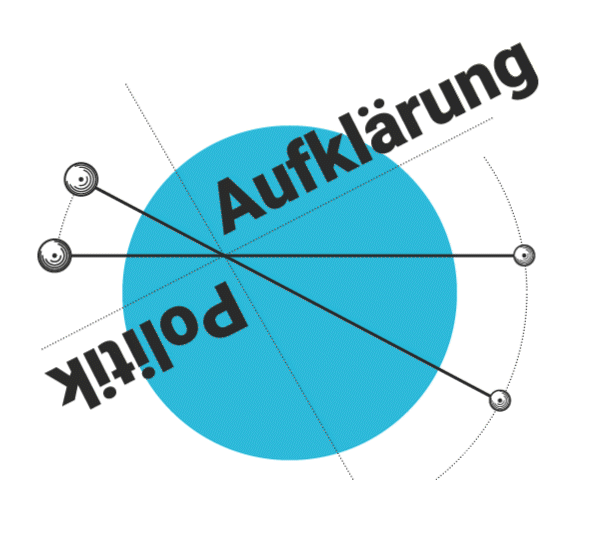The Research Training Group examines the politics of the Enlightenment from the 18th century to today. Its approach is twofold: firstly, it asks how the Enlightenment thought and acted in a political sense. Secondly, it questions how the conception of Enlightenment is constructed and perpetually renewed through political aims and decisions: How does the Enlightenment shape politics? And how do politics shape the Enlightenment?
The group thus addresses central concepts, narratives, images, and mental figures through which the 18th century Enlightenment shaped politics as well as the way in which “Enlightenment” and associated concepts have been understood from the 19th to the 21st century and deployed in political discussions. Both perspectives form a factual correlation, for the politics of the 18th century Enlightenment are more than a mere series of static views or assertions, i.e., the primacy of reason or justice: the Enlightenment was and remains a future-oriented project, that in retrospect has been interpreted in many different ways, both historically and as a general concept. This process has yet to reach its conclusion. Unlike the names of most historical periods, “Enlightenment” is still a point of reference appropriated in political discourse.
Ambiguity and Antagonism: Politics and the Political
The Research Training Group works off the assumption that the ambiguity and agonism of the Enlightenment are connected to its political character. Enlightenment has always been a political endeavor, as it aims to change the world and therefore takes action within it; at the same time, it is also always part of political power and interest constellations. This can lead to its often-universal assertions and claims actually serving particular interests, an accusation also made by post- and decolonial theorists with regards to “European universalism.” In examining this tension, the group aims to distinguish between politics and the political: whereas the notion of politics represents concrete decisions and processes, the political describes the predominantly implicit presuppositions about social life. These two factors find themselves in a dialogic relationship, allowing for a differentiated analysis of both the internal perspective of Enlightenment discourses and the external perspective of their limitations and exclusions.
Interpretations and Appropriations: The Afterlife of the Enlightenment
The tension inherent to the politics of the Enlightenment also determines its afterlife. This is why the Enlightenment is controversial today: because it has repeatedly been defined in new and different ways, throughout the 19th and 20th centuries and even today. It is precisely the political core of the Enlightenment – namely, its relationship to the French Revolution – that has been and continues to be reinterpreted in new ways. Thus, it is necessary, from a hermeneutic standpoint, to think about the Enlightenment and its impact, i.e., interpretations, applications, appropriations, and adoptions thereof, as two sides of the same coin. It is only through its post-history that we can understand why the Enlightenment is still generally understood today as both a historical epoch and a contemporary project or one needing to be brought into the 21st century.
Applications and Adoptions: The Enlightenment in a Global Context
Also looking at it in a global context, the Enlightenment did not end around 1800; it continues to be taken up time and time again for projects of modernization, improvement, liberation, etc., which often make emphatic reference to Enlightenment ideals. These movements are as diverse as they are contradictory, and there is a dearth of research concerning them. They often grind away at the hegemony of the “West” and develop critical alternatives that make it possible to understand the limits of the Enlightenment in new ways. It is an explicit goal of the Resarch Training Group to open a dialogue between these critical positions and Enlightenment research, while also emphasizing its sociopolitical relevance today, a time filled with heated debates about the meaning of the Enlightenment.

